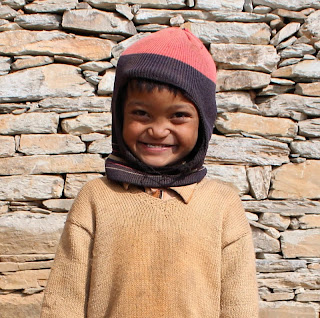Dell Challenge – We Made it into the Semi Finals!
Good news for everyone!
Our project “Maya Universe Academy” has made it to the semi finals in the Dell Challenge. Thanks to everyone that voted. We appreciate every support that you have provided us. Maximum votes for us would mean more chances of winning the “People’s Choice Award.” Already, Dell is matching all donations given to make our project succeed.
Thank you for your ongoing support, we will keep you up to date on the progress!
College Students Emilie Schwarz and Sarah Inskeep
College of the Atlantic students Emilie Schwarz and Sarah Inskeep have joined hands with Maya Universe Academy to support a child. On VALENTINES DAY they both handed over the sum of $200 each. They both believe that there is a way to make a positive impact on a kids life by being a support.
“More to follow on why they have chosen to support a child at Maya”
Maya Farm
Maya Farm
Maya Universe Academy, with the help of one of our dedicated Mayans, Mr. Surya Bahadur Karki, a graduate from the Simon Bolivar UWC of Agriculture, recently started a door-to-door community outreach program on poultry farming. The knowledge and experience Surya gained during 3 years of intensive agricultural studies in Venezuela has allowed him to engage and educate the rural communities we operate in and help farmers become aware of ways to enhance their agricultural production and improve the economic situation of rural families and their communities. After surveying the needs of the communities surrounding our schools, Surya concluded that Maya Farm will best serve as an educational center that conducts teach-ins and workshops on various processes of organic and sustainable farming, including poultry hatcheries, aquaponics, orchard and fruit plantations, composting, grey water irrigation systems, erosion prevention methods, and macrobiotic solutions. Our first workshops were held in the villages of Rato Mato and Beltari, near our Tanahu campus, with great camaraderie and success. In the future, Maya Farm expects to be a leader in experiential agricultural education and a go-to resource for farmers and educators implementing organic, sustainable farming methods in rural Nepal.
Since the establishment of the Maya Farm, we have significantly increased our production sector, improving yields from our organic vegetable garden where we grow tomato, cucumber, radish, carrot, cabbage, coriander, pumpkin and many more wonderful plants. We now have an integrated animal farm where pigs, ducks, chickens and rabbits cohabit the same jungle, living and sharing the same land. To sustain, educate, and become an example in the community and the country, Maya Universe Academy has started producing rice and pineapples alongside our bananas, which will start bearing fruit this year. Around our school in Tanahu we also have orange trees. Establishing this operation took years of hard work and dedication by many, and we would like to recognize the tremendous work our volunteers, donors, and parents do. If it weren’t for you and all our supporters who work wholeheartedly day and night, our farm could not continue. Thank you! We look forward to your continuing support, encouragement, and guidance.
 |
| Photographs from our recent Banana Farming Workshop in Tanahu, Nepal. |
Maya Farm is just one part of the movement towards a better Nepal initiated by Maya Universe Academy and we welcome your generosity and support to help bring positive change to our world. We look forward to walking with you on this journey. As we look to the horizon, we see many hills still to come.
Another Project to Vote
Read and vote for our projects on DellChallenge.org
“We have designed a project that will help Maya Universe Academy, to reach more communities. “
Vote for our projects.
Read and vote for our projects on teh Dell Soical Innovation Challenge!
“We have designed a project that will help Maya Universe Academy, to achieve financial independence to provide quality education to kids, and employment opportunities for youth in rural Nepal. “
Vote for us on the Dell Challenge website!
You have to sing-up in the top right corner, and then vote for our project. Help to make this project a reality!
Dell Social Innovation Challenge VOTE NOW for Maya!
Please vote for our project!
To do this you will have to:
1. Visit the website www.dellchallenge.org.
2. Create an account (click the "register" button in the upper right hand corner or click here to register)
3. After registering, you will have to activate your account by email.
4. Then copy and paste http://www.dellchallenge.org/projects/school-farm-and-education or click the link and vote for us.
5. Spread the word and help kids like this guy learn!
How A Gift Economy Powers Education In Rural Nepal






 Maya Universe Academy, Nepal
Maya Universe Academy, Nepal






